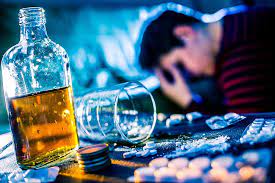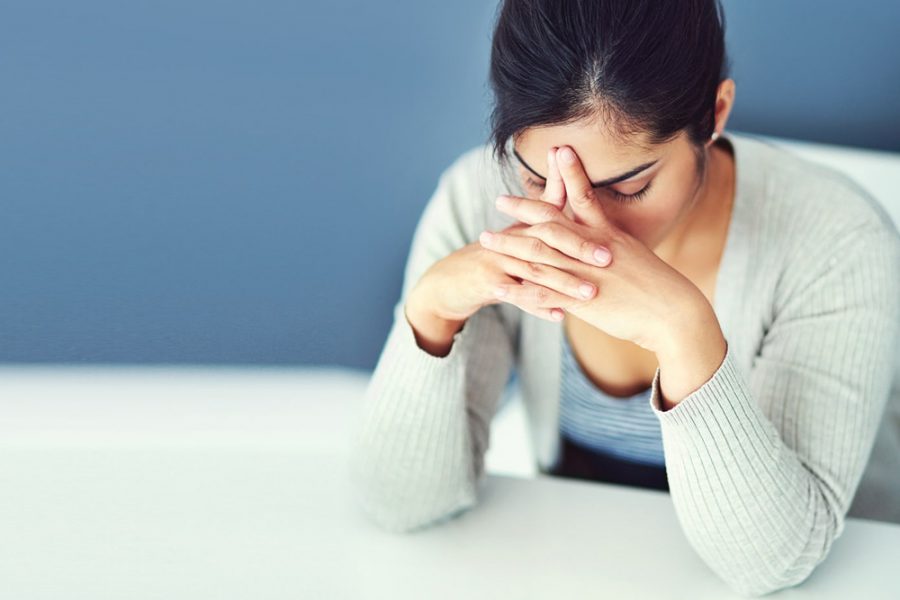Anxiety disorders are among the most common mental health conditions in the United States. Data from the Anxiety and Depression Association of America (ADAA) shows that 40 million American adults (aged 18 and older) suffer from anxiety disorders every year. That’s about 18 percent of the US population.
The good news is that anxiety disorders are highly treatable. Despite this, less than 40 percent of those with these conditions receive proper treatment. In some cases, individuals with anxiety disorders resort to substance use to try and relieve their symptoms.
Because of this, the ADAA estimates that around 20 percent of people with anxiety disorders are also afflicted with substance use disorders.
Why does anxiety lead to drug use? Are anxiety treatments also able to address associated substance use disorders? Let’s find out.
Why anxiety may lead to drug abuse
 When you are experiencing symptoms of an anxiety disorder, like trembling, nervousness, difficulty speaking, irritability, and the like, you would want yourself to calm down. Drinking alcohol is a popular way to do this. After a drink, you may begin to feel more relaxed and confident.
When you are experiencing symptoms of an anxiety disorder, like trembling, nervousness, difficulty speaking, irritability, and the like, you would want yourself to calm down. Drinking alcohol is a popular way to do this. After a drink, you may begin to feel more relaxed and confident.
While the occasional drink does no harm to your body, you may get used to the relaxing effects of alcohol over time. Eventually, you will no longer feel these effects after just a few drinks. Your body will need more alcohol to feel the same effects. This is called tolerance, and it can build up over time. It may then lead to heavy drinking, which in turn can become an alcohol addiction.
The same holds true if you use other addictive substances, like marijuana, to deal with anxiety symptoms. At first, you may feel yourself improving. But as you keep taking those substances over time, you will eventually develop a substance use disorder.
At the end of it, you will have been suffering from two conditions instead of just one.
How to avoid drugs when you have an anxiety disorder
 If you often experience symptoms of anxiety, the best thing to do is to consult a mental health professional. They can help you figure out if you actually have an anxiety disorder. When you have anxiety symptoms, it doesn’t always follow that you have an anxiety disorder. You need to fulfill specific criteria first before being diagnosed with one.
If you often experience symptoms of anxiety, the best thing to do is to consult a mental health professional. They can help you figure out if you actually have an anxiety disorder. When you have anxiety symptoms, it doesn’t always follow that you have an anxiety disorder. You need to fulfill specific criteria first before being diagnosed with one.
If the mental health professional concludes that you do not have an anxiety disorder, he will teach you techniques to manage your anxiety. These include mindfulness, breathing exercises, and calming statements you can tell yourself each time you feel anxious. These prove helpful in relieving common symptoms of anxiety and help you calm down and think more realistically about the things around you.
On the other hand, if you do have an anxiety disorder, treatments are in order.
What kind of anxiety treatments are available?
Basically, there are two types of anxiety treatments: medications and psychotherapy. The former are prescription drugs used to relieve anxiety symptoms in some patients. Not everyone with anxiety disorders need medications, though. This would depend on the severity of your case.
Psychotherapy, on the other hand, are treatments that deal with your mind and emotions. Some mental health practitioners call them talk therapy because of the conversational nature of the treatments.
There is a wide range of talk therapies used in addressing anxiety disorders, but by far the most effective is called cognitive behavioral therapy or CBT. At its core, CBT aims to correct negative patterns of thoughts and behaviors that lead to anxiety.
 During CBT, your therapist will train you to identify erroneous thoughts that are not grounded in reality, which in turn trigger anxiety. He will then ask you to consider more realistic and positive alternatives then have you weigh the evidence for both the negative and positive thoughts. Once you realize the positive thoughts have more basis in reality, then your patterns of thinking about anxiety-inducing situations will change.
During CBT, your therapist will train you to identify erroneous thoughts that are not grounded in reality, which in turn trigger anxiety. He will then ask you to consider more realistic and positive alternatives then have you weigh the evidence for both the negative and positive thoughts. Once you realize the positive thoughts have more basis in reality, then your patterns of thinking about anxiety-inducing situations will change.
Once you get the hang of thinking more positively about the things that cause you anxiety, you will feel less and less anxious when in those situations. Eventually, you’ll be able to approach those situations with confidence.
In addition to being highly effective, CBT also does not take long to produce results. Many patients have reported significant improvements in their anxiety symptoms after eight to ten sessions of CBT.
What if I have both an anxiety disorder and a substance use disorder?
If you have two mental health problems occurring at once, this is called a dual diagnosis. It requires special attention since both conditions must be treated side by side. If each one is treated separately, your recovery outcomes are not as good.
Dual diagnosis cases are best treated with residential rehab programs, also known as inpatient rehab. In residential rehab, you need to live inside a rehab facility for anywhere between one to three months, depending on the program you’re enrolled in.
Inside the rehab facility, you will be fully focused on your journey to recovery. You will learn to adopt a new, healthy lifestyle that does not involve addictive substances. Each day, you will attend a number of therapy sessions to help you work through the substance use disorder. Also, you can get into new hobbies in rehab if they offer recreational amenities like sports areas. If you get into a sport, for example, you will learn an entirely new way of coping with stress. Not only is it drug-free, but it keeps your body fit and healthy as well.
Dealing with both anxiety and substance abuse is tough. But when supervised by trained professionals in a residential rehab facility, your chances of recovery are much higher. It may take some time and effort, but at the end of it, you will be able to take control of your life again and live sober.






Leave a Reply